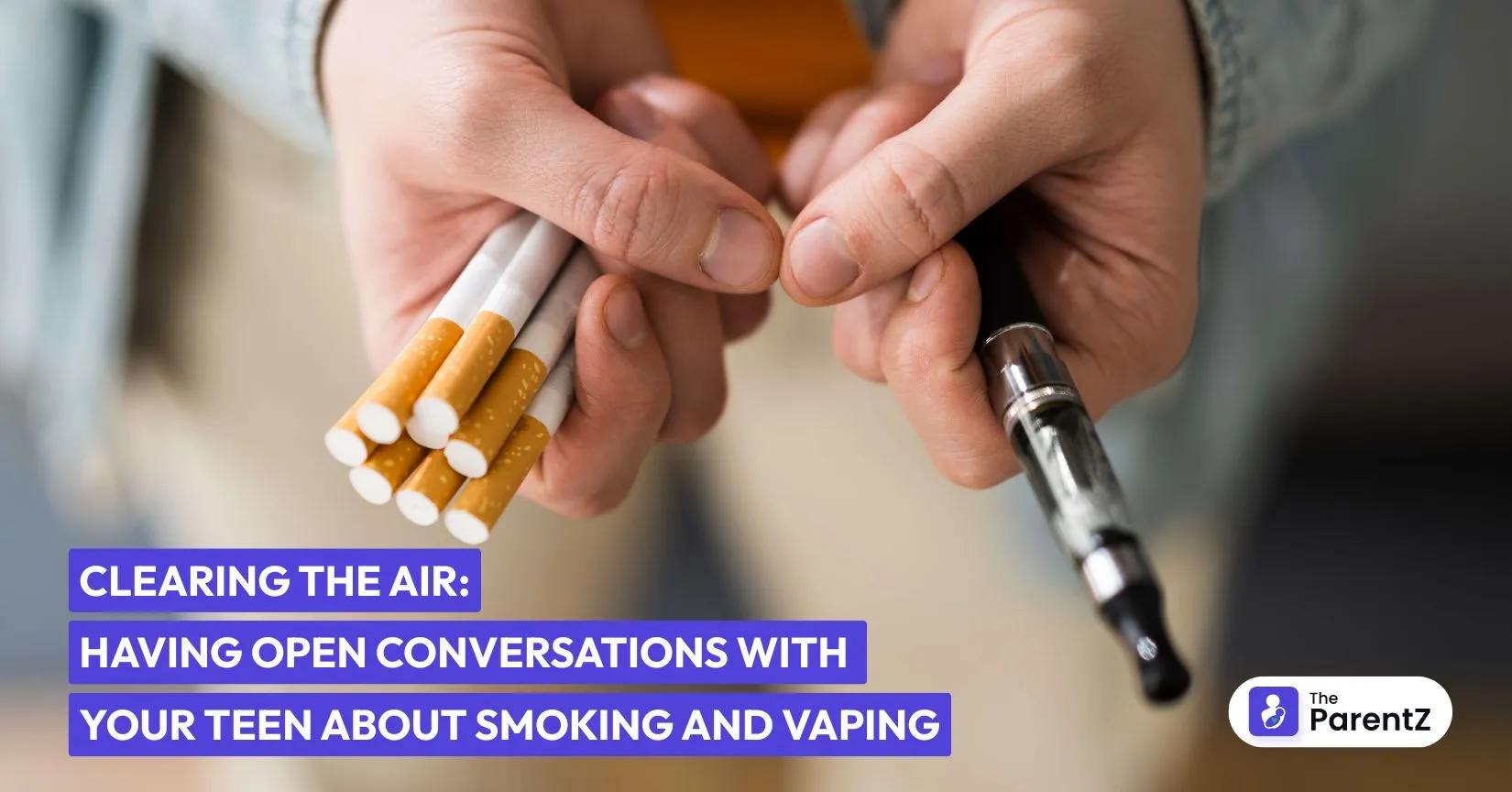No parent wants to receive the text message: "Mrs. Johnson, I caught your son behind the gym with a vape pen today." Or maybe it's finding an unfamiliar device in your daughter's jacket pocket, or the lingering smell of smoke that suddenly appears in your car. In that moment, your heart sinks. Where did you go wrong? What happens next?
Smoking and vaping are not just “bad habits” or rebellious teenage phases-they’re dangerous, addictive, and can destroy lives. If you’re a parent, you probably already know this. But do your teens? In a world where flavored vapes are marketed like candy and cigarettes are still glamorized in movies and on social media, having an honest conversation with your child about smoking and vaping is more urgent than ever.
Why Teens Are Particularly Vulnerable
Your teenager's brain is still developing, especially the parts responsible for decision-making and impulse control. This makes them particularly susceptible to addiction. Research shows people who start smoking during adolescence develop more severe nicotine addictions than those who start later.
Teens are hardwired to seek social acceptance and explore boundaries. When they see smoking or vaping in movies, on social media, or among peers, it creates powerful influences. One study found teens exposed to the most smoking in films were 2.6 times more likely to start smoking themselves.
The flavor factor cannot be underestimated – almost 88% of teens who vape use flavored products. These aren't marketed to adults trying to quit smoking; they're designed to appeal to your child's sweet tooth.
The Journey from Experimentation to Addiction
It starts innocently enough – a puff at a party, a hit from a friend's vape pen. "It's just this once," they tell themselves. But nicotine is one of the most addictive substances known to humanity. That "just once" turns into "just sometimes," and before they realize it, they're hooked.
Of adolescents who have smoked around 100 cigarettes, most report wanting to quit but being unable to. That's the insidious nature of nicotine addiction – it traps young people before they even understand what's happening.
The Real Impacts – Medical, Physical, and Psychological
Smoking during adolescence causes immediate health problems:
- Reduced lung function and growth
- Increased respiratory illnesses and their severity
- Decreased physical fitness and endurance
- Potential for early heart disease
- Skin damage and premature aging
Vaping isn't innocent either. E-cigarette aerosol contains:
- Nicotine (highly addictive and harmful to brain development)
- Heavy metals like lead
- Volatile organic compounds
- Fine particles that damage the lungs
Psychologically, nicotine addiction creates a cycle of dependence, anxiety, and mood swings. When teens can't get their fix, they experience irritability and decreased concentration, affecting their school performance, relationships, and emotional well-being.
When a teen becomes addicted, it’s not just their problem. Families suffer from worry, conflict, and sometimes financial strain. Relationships are tested. At a societal level, youth tobacco use leads to higher healthcare costs, lost productivity, and a cycle of addiction that’s hard to break.
How to Talk to Your Teen – Finding the Middle Ground
So, how do you approach this? Somewhere between complete leniency ("kids will be kids") and absolute authoritarianism lies an effective approach.
- Start early and be consistent: Don't wait for signs of trouble. Begin these conversations before middle school and continue them regularly.
- Get educated: Before talking to your teen, make sure you understand the facts about modern smoking and vaping products. Teens can spot an uninformed lecture a mile away.
- Listen more than you speak: Ask open-ended questions: "What do you know about vaping?" "Why do you think kids your age smoke?" Their answers will reveal misconceptions you can address.
- Share facts, not fear: Instead of exaggerated scare tactics, provide real information. "Did you know that your brain is still developing until you're about 25, and nicotine can permanently alter that development?"
- Be authentic: Share your own experiences or concerns without lecturing. "I started smoking at your age and struggled for years to quit. I don't want that battle for you."
- Set clear expectations and consequences: Make your family rules crystal clear, along with meaningful consequences for breaking them.
- Recognize peer pressure is real: Help them develop strategies to resist offers to smoke or vape. Role-playing scenarios can be incredibly effective.
- Focus on immediate consequences: Teens often dismiss long-term risks. Focus on impacts they care about: bad breath, yellow teeth, less money for things they want, and reduced athletic performance.
Ignoring or downplaying the issue is not an option. If left unchecked, nicotine addiction can destroy not just your teen’s health but also their relationships, academic performance, and future opportunities. It can tear families apart and contribute to a broader public health crisis.
When You Discover Your Teen Is Already Using
If you find out your teen is already smoking or vaping, try not to explode. Your immediate reaction will determine whether they'll be open to help or drive the behavior underground.
- Address it directly: "I found this vape pen in your room. I'm concerned, and we need to talk about it."
- Ask why: Understanding their motivations helps address the root cause. Are they managing stress? Trying to fit in? Curious?
- Get professional help if needed: If your teen is already addicted, consider speaking with your healthcare provider about cessation support.
- Be their ally: Make it clear you're on their side against addiction, not against them as a person.
Conclusion
Talking to your teens about smoking and vaping isn’t easy, but it’s necessary. This isn’t about being the “cool parent”-it’s about saving lives, futures, and families. Your willingness to tackle tough topics openly could be the difference between a brief experiment and a lifelong struggle with addiction. Your teen needs your guidance now more than ever – even if they roll their eyes when you offer it.





Be the first one to comment on this story.